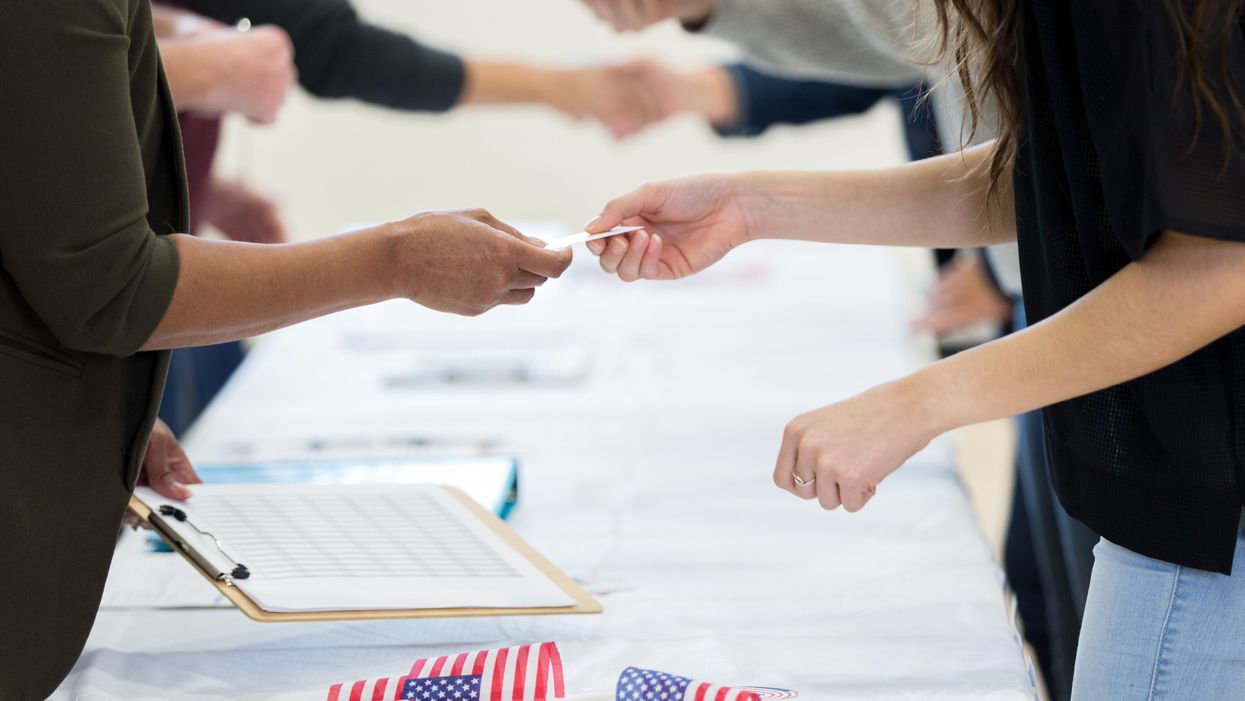Just days prior to Thanksgiving, the federal government announced that the national voter registration form will be offered in select Native American languages for the first time.
The Election Assistance Commission revealed Monday that the form will be translated into the Yup'ik, Navajo and Apache languages, bringing the total non-English offerings to 20 languages. The EAC said this expansion was done in celebration of Native American Heritage Month and as part of its efforts to improve voting accessibility.
"The Navajo Nation leads history again by allowing our sacred language to be translated to register more of our people to vote," said Seth Damon, leader of the Navajo Nation Council. "The Native American vote is powerful and our Sovereign Nations will continue to decide elections across the United States."
Native Americans were not granted full U.S. citizenship or the right to vote until the passage of the Snyder Act in 1924. And over the last century, Native American voters have faced significant barriers to the ballot box. During the 2020 election, mail voting access was of particular concern since many Native American voters live in areas without traditional mailing addresses or access to postal offices.
" Alaska Native people deserve equitable access to all parts of the electoral process, and translating important forms and content into our Indigenous languages is an important step in that direction," said Samantha Mack, language assistance compliance manager at the Alaska Division of Elections.
Eligible U.S. citizens can use the national voter registration form, but must follow state-specific instructions to register or update their voting information. Apart from English and the three Native American languages, the form is available in Amharic, Arabic, Bengali, Chinese, French, Haitian Creole, Hindi, Japanese, Khmer, Korean, Polish, Portuguese, Russian, Somali, Spanish, Tagalog and Vietnamese.
All of the language offerings are written translations, except for Apache, which is the first ever audio translation of the form. Some Native American languages are primarily or solely spoken languages, making written translations essentially impossible.
"Election terminology can often be difficult to translate into other languages without the assistance of native speakers and translators," the EAC commissioners said in a joint statement. "With access to election materials translated by native speakers from within their own communities, Native American voters will have a better understanding of the election process and greater accessibility."
The Navajo Nation also hopes to have a Navajo audio translation that talks voters through the form, Damon said. The EAC said in its announcement that the agency plans to expand upon the audio translations it offers in the future, as well as explore other ways to improve voting access for Native Americans.
"Working with Indigenous speakers to translate the national mail voter registration form into Yup'ik, Apache and Navajo languages eliminates some obstacles that limit native voter participation in U.S. elections and lives up to Section 203 of the Voting Rights Act," said Native American Rights Fund staff attorney Matthew Campbell, who leads the nonprofit legal organization's voting rights work. "Meaningful democracy reform requires this kind of inclusive participation and a commitment to support the rights of all eligible citizens to vote."




















